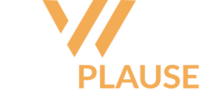Technical SEO forms the foundation of any successful online strategy, optimizing the infrastructure of a website to enhance its visibility, usability, and performance in SERPs. As websites grow in complexity, understanding and implementing technical SEO tactics become indispensable to securing a top position in search rankings and captivating your target audience.
Enhancing Website Speed

Image Optimization
By resizing and compressing images, unnecessary image details are removed without affecting the overall quality. It’s essential to choose the correct image format; for example, JPEG files are generally smaller than PNG, BMP, or TIFF files. Utilizing content delivery networks (CDNs) to host photos and other media files can also enhance page-load speed, as files are downloaded from the nearest server, reducing the load on a single web server.
CSS and JavaScript Minification
Minification of CSS and JavaScript is another effective strategy for enhancing website speed.
This process involves removing unnecessary characters, such as whitespace, from the code, which reduces its size and thus improves load time.
Tools like cssminifier.com, minifier.org, and javascript-minifier.com can automate this task, making it less laborious
Moreover, using CDNs can be particularly effective for larger, complex websites as they handle the minification and distribution of code across multiple servers, often without the need for additional configuration.

Ensuring Mobile-Friendliness
Responsive Web Design Techniques are pivotal for enhancing a website’s interaction across various devices. Furthermore,AMP Implementation offers an additional method to optimize mobile web experiences. Accelerated Mobile Pages (AMP) is a technology designed to make web pages load faster on mobile devices. By utilizing a simplified HTML code, AMP enables pages to load almost instantaneously, enhancing both user experience and SERPs ranking.
Boosting Security for Better SEO.

Implementing HTTPS
By installing an SSL certificate, websites can ensure that all data transmitted between the web browser and server is encrypted, safeguarding sensitive information like passwords and credit card numbers from being intercepted by third parties
Protecting against Cyber Threats.
Implementing security measures such as firewalls and regular security monitoring can protect against threats like malware injections, phishing, and negative SEO attacks, which can sabotage a website’s SEO efforts and damage its SERP rankings.
As the digital realm continues to evolve, staying abreast of these technical SEO best practices will remain a pivotal aspect of achieving and maintaining online success.



